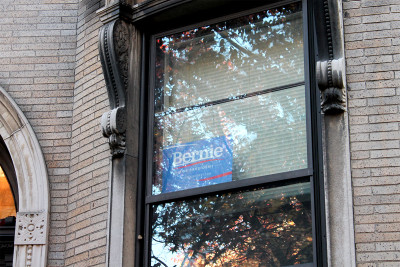
Even though she is an international student and will not be able to vote in the upcoming 2016 U.S. presidential election, Jesslyn Katherine, a sophomore in the College of Arts and Sciences, joined the Boston University Students For Hillary group this year to project her voice into BU’s political sphere. Katherine said she hopes to mobilize other international and domestic BU students to follow rising campaigns.
“If you start from next year, you will just go with the flow,” Katherine said. “You will not get the idea of why candidates are running and how goals can be put into action in real life. If you only follow from the end of the campaign, it seems like you are only voting for those who are higher in the polls. If you start from the ground and get involved in candidates you believe in, for me I strongly believe in Hillary Clinton, you get a feel for the process.”
With the election just one year away, candidates’ campaigns continue to accelerate as the 2016 Election Day approaches, and some BU students have a wide array of presidential preferences.
Given the more polarized general American population, the 2016 election has lent itself to the emergence of candidates who lean further to both sides of the spectrum. Donald Trump and Bernie Sanders, for example, stand on opposing political sides, Sanders a self-declared Democratic Socialist and Trump a conservative.
“These candidates being radical is a reaction to America being set up with inaction. Politicians saying one thing and doing another, doing one thing and then getting blocked by Congress, the whole divided system,” said Gabriel Messercola, a junior in CAS. “I think the radical candidates Bernie and Donald both stem from inaction in the White House.”
Messercola said Sanders appeals to idealistic people.
“A lot of college kids are educated and very idealistic, which I don’t think is a bad thing,” he said. “It is hard for a radical candidate like Bernie to appeal to the older generation and some people who aren’t super educated.”
Trump, on the other hand, appeals to those who are tired of current politicians, said Corey Pray, a junior in CAS and standing president of BU College Republicans.
“A lot of people support him. Four years ago, he jumped into the race and only lasted a few days, and he jumped out. This year he jumps in and at least 25 percent of the party supports him,” he said. “What has changed in four years that he has so much support? Donald Trump is a politician, but he is not acting like one. I think that is why people are flocking to him. They are sick of the establishment in Washington.”
Although a growing fraction of the American public is embracing Trump — he has been near the top of the Republican polls for the last few months — Pray said he has yet to find a BU student who expresses support for the candidate.
“We have about 50 active members and within that there is a lot of diversity,” Pray said. “People support a wide range of candidates. Everyone from Marco Rubio to Carly Fiorina, some even to Ted Cruz, and John Kasich is in the mix. We don’t have anyone yet who is a Donald Trump supporter.”
Some students, however, are not as set on either side.
“The language gets more polarized than the people do. It’s my hope that people are a lot more thoughtful than just going along the liberal or conservative party lines,” said Fred Bayles, a journalism professor in the College of Communication. “Because of the degree of polarization played out in the media, some young people may be less inclined to label themselves because they are sort of fed up with both sides.”
Messercola said he is a part of this population of students who prefer not to identify with a party.
“Registering to vote in the primaries is important, but I know a lot of people who hate registering,” Messercola said. “I didn’t want to register as a Democrat. I wish I could have remained independent and voted in the primary, but that’s not how the system works.”

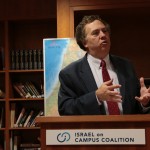
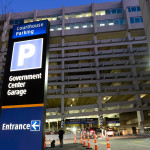
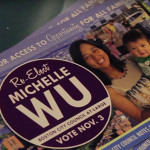
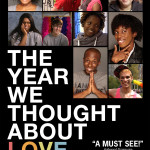
Foreign students involvement in campaigns – Federal Election Commission
http://www.fec.gov/pages/brochures/foreign.shtml#Volunteer
Trump is not nearly as conservative as Sanders is liberal. In fact, on several social issues, Trump is significantly more liberal than his fellow Republican candidates. Comparing Sanders to Ben Carson or Mike Huckabee (in terms of equality on the liberal-conservative spectrum), would have made far more sense. Not surprised by this, considering this year’s staff is incredibly biased toward the liberal POV. That’s okay for editorials, but keep it out of news.